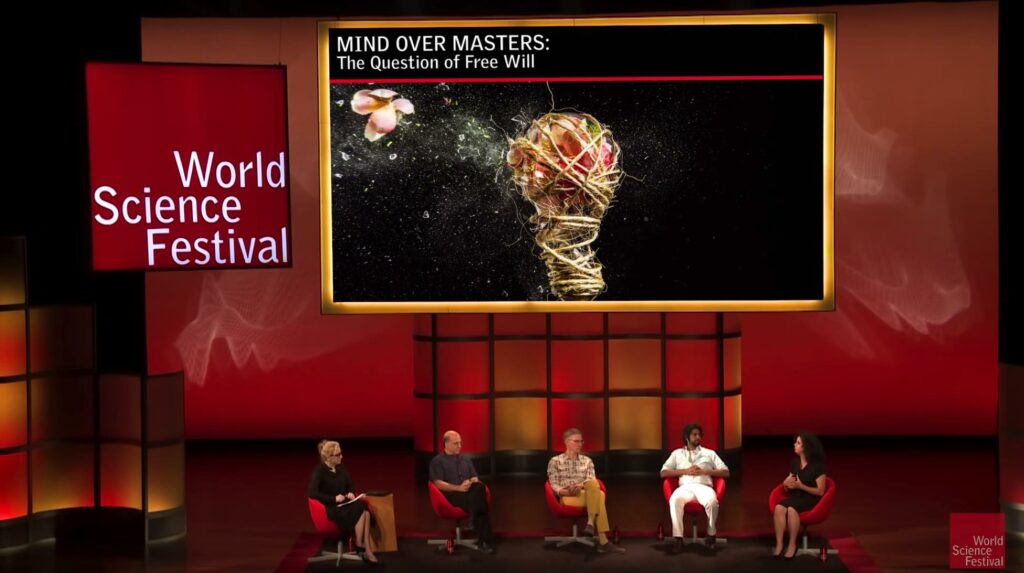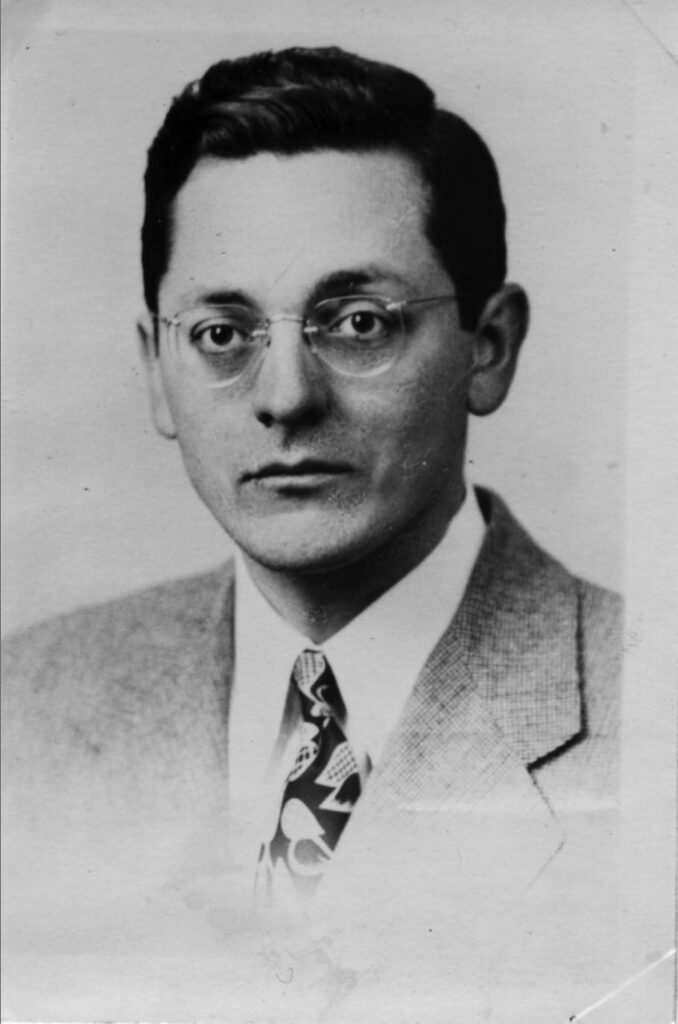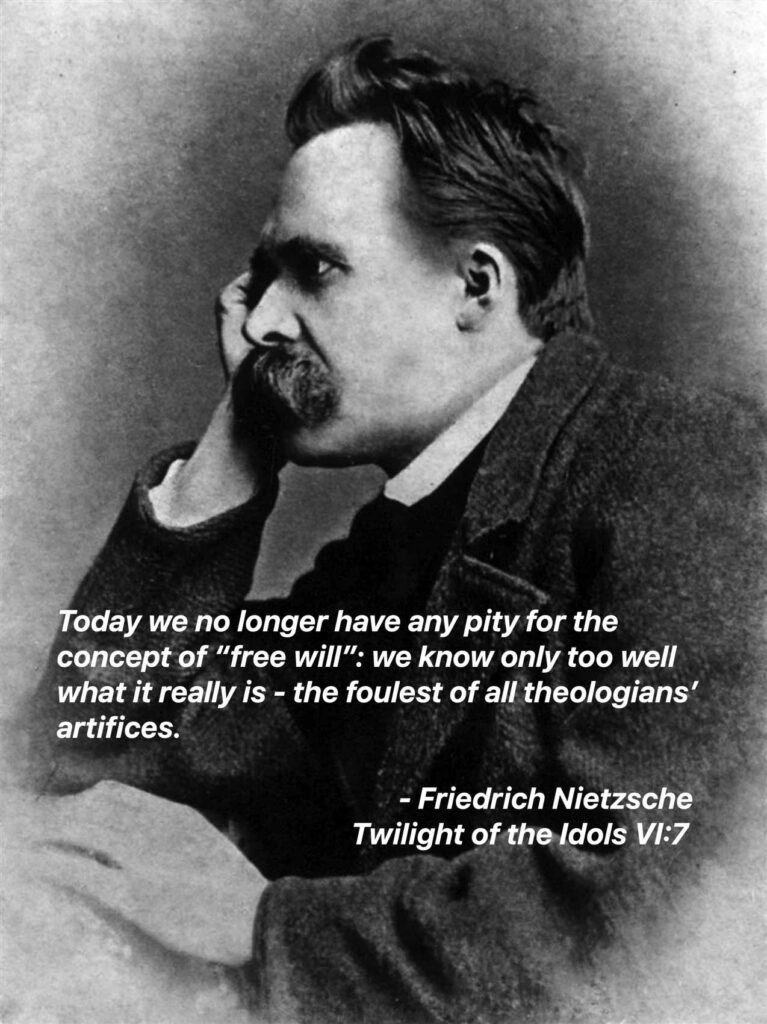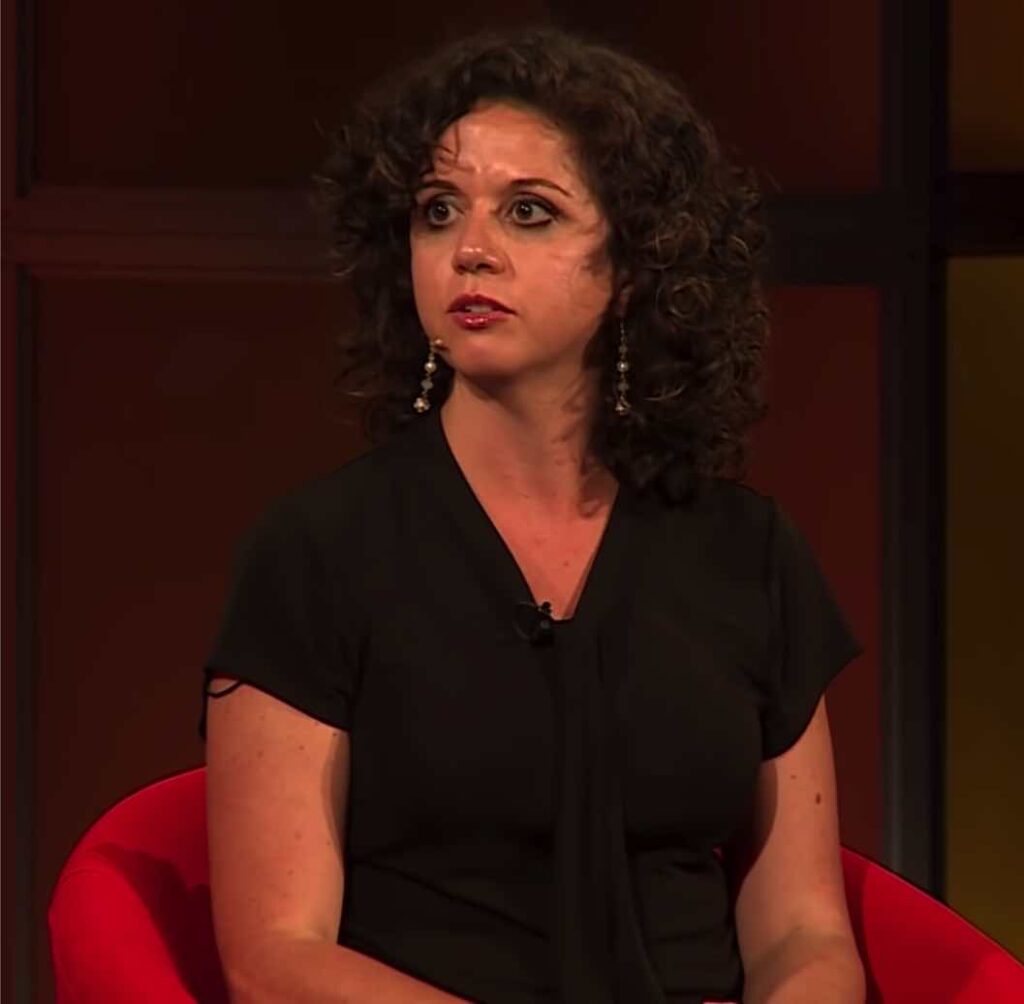What if there wasn’t free-will in the Universe? What if everything was set in motion and couldn’t become anything other than what it will? If everybody thought that, how would that affect our sense of responsibility about doing the right or wrong thing? Would we be more lenient? Let’s talk about that. Ready?

If there was no such thing as free-will, how could Pamalogy serve to maximize awesomeness? You may have heard from certain physicists and neuro-scientists who have downplayed the idea of free will. Even when you bring up the many worlds theory, physicists will diminish it by saying quantum mechanics is restricted to closing probability curves. There’s no proof that improbable worlds exist. And there can be no empirical proof that any extra-temporal Universes exist either.
Physicists prefer the world of the emperical to the land of theory. They wouldn’t even be talking about many worlds theories if it weren’t for the quirky behavior of particles of light that they’ve had the misfortune to observe. You send one particle at a time through two slots thousands of times with a particle beam and instead of getting two sets of random splatters, like you might see when shooting a gun at a target, you get a wave pattern. Why should there be a wave pattern for a single particle? Wave patterns only happen when there are undulating forces on the path from point A to point Z. The particles act as if there are bunches of other particles acting at once, like the ripples on a pond that intersect when two rocks hit the surface within a few feet of each other.
You should be aware that the quantum physicist will admit that the best explanation for this phenomenon is that there are many worlds, at least for particles of light, but don’t expect them to conclude this tells us that the many worlds they’ve discovered through these experiments, exhaust every possibility. They’ll only admit that the light shot by their particle beams follows a probability curve. Multiverse theory props up all sorts of pseudo-science. As a believer in the Multiverse, I’d like to not be guilty of that. Science and philosophy are fields that should be complimentary but the “:spooky behavior of particles at a distance,” Einstein spoke of, has been a bit of a Pandora’s Box for popular new agers.
Physicists have even found that observation affects results. What do you think an admission like that does for the Depak Chopras of the world? But physicists won’t necessarily conclude that consciousness is fundamental to reality either. All these observations really do is make them aware that more precise formulas have to be based on probability. They realize that no specific location of any particle can be predicted with accuracy. Do you understand the difference?
Reality closes out the possibilities and probabilities with results that tend to be close to predictions according to bell curves. Stuff that’s outside those curves of probability isn’t anything they’re observing. All the pysicists are doing is admitting that physics isn’t fully predictable to the infinith decimal. Empiricists are happy to leave the waves patterns of light and the causes of the various quirks of sub-atomic particle behavior an unsolved mystery. Quantum mechanics simply is as quantum mechanics does. Physics has to deal with it the best that it can. There’s no admission of far-out theories we can raise our bongs to.
But don’t worry. I still believe in the Multiverse and I still have proof that the stuff outside the bell curve matters. Time and space are as subject to consciousness as ever, and that fact is more than a matter of the inadequacy of predictability. Most importantly, this isn’t a lesson in quantum physics. I’m not qualified. I know enough about physics to know how much I don’t know and know to leave it for specialists. Neither am I a neuroscientist, but we’re going to talk about that today too. What I know quite a bit more about is the philosophy of the mind, since at least that’s been a concentration of mine in college. You also are probably aware that ever since Descartes was abandoned by the physicalists, neuroscience has been building stronger and stronger ties to philosophy, especially the philosophy of mind. Pamalogy is the philosophy of awesomeness, awesomeology. All of these sciences contribute to questions asked when we want to know how awesomeness could conceivably be maximized. If free-will has a value to a best possible Universe, then the question matters to awesomeology. But if neuroscience says that it doesn’t exist, then what should we think?
The unhappy marriage between neuroscience and free-will started out with a basic identity theory that said that for each brain state, there would be a corresponding state of mind, thought, feeling, desire and intention. Consciousness was a brain process and nothing more. So was the will. As neuroscience continued to influence the philosophy of the mind, more and more respected philosophers in academia came to see things this way, but it took them quite some time to get comfortable with it. First they had to peel off their traditional beliefs about God. Then they had to embrace materialism.
Materialism is the idea that even ideas are material things. They are matter. There is no such thing as mind over matter. There is only matter over matter.
Of course, we all know that matter is not the same thing as energy, but when materialists speak of matter, they really mean both matter and energy, along with all the other subatomic phenomena and the fields that may comprise the fabric of the Universe. To them it’s all physical stuff – material. You know what they mean even though the you in what knows, to the their minds, exists only in a Universe whose probability curves have been closed. You, as you, identified as you, are the you that your body and brain say you are. You have no spirit. You have no soul. All you are is dust in the wind. Your consciousness will not continue to exist once you disintegrate in the world that they see you in, unless by some improbable fluke, the Universe happens to reconstitute a clone of you in some future time. Then the exact you of being you would live again because you would have the same exact brain states that would create your you-ness now. That’s how they see it. They believe it. That’s good enough for them.
Not me.
But you know I like thought experiments, so let’s play along and meet some of the modern materialist philosophers and consider the implications of their determinism. So there’s no such thing as free-will, they say. Heh? To do this thought experiment, I’m going to summarize my notes on a meeting of the World Science Festival on May 30, 2015, hosted by Dr. Emily Senay.

The modern attack on free-will all started with experiments by the late neuroscientist, Benjamin Libet. Subjects would be hooked up to an EEG that would record electrical impulses from their brain. They would also be given a button to press and their muscle movements would be monitored with a timer. They were asked to randomly choose points in time to move their wrist, clicking on the button whenever they had made up their mind to move.
The results of the experiment showed brain activity beginning about 500 milliseconds before each movement, while any awareness of a decision to move was taking place about 200 milliseconds before the movement, plus or minus 50 milliseconds. This told Libet that a brain state preceded and corresponded to a decision in every case and that if an action wasn’t consciously made, then it wasn’t freely made. Therefore, there was no such thing as free-will.
But you might object to this conclusion and say, “well, of course!” First, some deliberation about when or if to move would have to take place before becoming aware of a decision. Therefore, the lead time of brain activity may have reflected that deliberation activity prior to the actual decision. That was certainly my first response. Why did Libet so quickly conclude that the brain activity had to be the cause of the thought, rather than the thought the cause of the brain activity? And what would be the problem with free-will even if they concluded they were simultaneous? Couldn’t will precede awareness of will?

Alfred Mele, a philosophy professor at Florida State University, explains that Libet also tested for decisions not to do something – not just free will, but something called “free won’t.” Would that help answer my question? This experiment was centered around preparing to do something, but then vetoing the decision and not doing it. Results showed brain activity prior to the decision in this case, as well. Does that mean free-will is dead, and free-wont with it? Mele doesn’t think so. Neither do I.
For one thing, Mele doesn’t think free will is a very clear term. Whether we say we believe in it depends on what we’re thinking of when we say we do or don’t. He likes dividing free will into three types – premium, high test and regular, like at a gas station. Regular free will (87 Octane), just means that when making a decision you aren’t compelled, that you are rational and unencumbered. The high test version (89 Octane) costs a little more. For something to qualify as true free will, these people will say that if you rolled back time to any decision you had ever made and had a second chance to make a decision in a perfectly parallel Universe where everything including your brain state was exactly the same except the decision was still open, for free will to truly exist you would have to have the power to make a different decision in that moment.
Now in neither the regular or high test versions of free will I just described is a soul required. That’s reserved for the high test brand of free-will at 91 octane, the one espoused by René DesCartes. They call that substance dualism. 87 and 89 are for materialists monists. Got it? So, according to Dr. Mele, there are plenty of philosophers who believe in free will, but not in DesCartes’ Premium free will. Most of them are monists. There is no soul.
Christof Koch, a neurophysicist sitting beside Dr. Mele, shoots low. He speaks of the point of awareness a person experiences as they are making a decision as “the feeling of agency.” He has conducted some experiments that are a little more sophisticated than those of Benjamin Libet and demonstrates how it works by playing a game like rock, paper, scissors with Dr. Mele. His experiments confirm Libet’s findings against free-will. Consistently, the feeling of agency follows specific brain activities that correspond to decisions that reflect the state of the mind and the state of the brain. The sense of free will always comes after the brain state corresponding to the decision by about 1/2 a second.
I find myself open to the idea that Mele and Koch may be right, but I’m far from convinced there is no soul. Who is to say that there isn’t an actual free moral agent in an extra-temporal Universe converging with a temporal one that stimulates the brain state, which subsequently stimulates the sense of free agency, which corresponds to the decision? If it is immaterial, it is not going to show up on an EEG or on any other instrument. Libet and Koch haven’t proven anything against this.
No, I think there are two reasons the soul is being discounted. First, it can’t be measured. Who ever said it could be?
Let’s think about this. There’s only two places belief in the soul makes sense – either in the realm of faith, or in the realm of reason. In the realm of reason, free-will is going by the way side due to the unpopularity of traditional religion among philosophers. There’s some circular thinking involved there. What if the whole preference for empirical verification among academics, whether they be philosophers or scientists, in favor of materialism is due to the unanswered questions they have about the problem of evil? Start the circle of logic there. They are simply unbelievers. They had to fill the gap. They have nothing else they can turn to. To their minds, any talk about an extra-temporal Universal consciousness is entirely theoretical and its associated with theories that don’t answer their own theoretical questions. Why is there evil in the world?
I think this is a very fair way to feel. Without a good explanation for evil, why should anyone believe there is a heaven, a God or a soul, or many heavens, many souls, or spirits of any sort? Why not believe only in what we can observe? It’s perfectly understandable. But if conclusions then all have to be based on what is observable, then it isn’t the experiment that is answering the question about free-will. It is their initial disposition that there is no soul.
But for the sake of a thought experiment, let’s suppose they are right about there being no subconscious agent that stirs on the brain states that subsequently correspond to the awareness of and feelings of moral agency that lead to decisions. What if they’re right? Also in attendance at the science festival is the head of the Culture and Morality Lab at the University of Oregon, Azim Shariff, a psychologist who has studied the implications of what learning that there is no such thing as free-will might have on culture and morality.
You might not be surprised to learn that in studies conducted of students who were given the opportunity to cheat on a difficult math test, the control group that had just learned that neuroscience does not support the notion of free will, cheated significantly more often than the group that was not given that information prior to the same test. “The less you believed in free-will, the more you ended up cheating,” reports Shariff. And there was another study done giving a control group the opportunity to steal. The results were similar. There was even a study of aggressive behavior towards annoying people. Those who believed in free-will were less mean to people they didn’t like than those who didn’t.
Who would have guessed? The correlation is direct, significant and proportional. But Shariff also points out that although disbelief in free-will does seem to cause moral breakdown, it also decreases the tendency to judge, shame and penalize offenders. We judge ourselves leniently and neither do we support retribution on others. We don’t want to suffer for our transgressions and we don’t want others to suffer for theirs either. If we are asked what people deserve, punishments that have social benefit and utilitarian advantages might remain, but not retribution and shame. What we see instead among those who no longer believe in free-will is a preference for deterrence and rehabilitative sentencing recommendations.

Shariff points out an exception for notorious killers who have killed those we’ve personally loved like the Boston bomber, Osama bin Laden, Adolph Hitler or Jeffry Dahmer. No matter what a person thinks about free-will, there is a part of human nature, most likely connected to a certain type of brain state, that demands retribution. Neitzsche, is of course quoted. He calls free-will “the foulest of theologian’s artifices.”
Is belief in free-will an excuse we use to fill an inner desire we have to punish mercilessly? Maybe it is. A little moral inventory of ourselves never hurts. And, in fact, Shariff also conducted a controlled study that asked about free-will beliefs. Classes which are told that there has been someone who cheated on an exam test, consistently test higher on belief in free-will, apparently to justify their desire to punish them. Neitzche seems to have been on to something.
Finally a female panelist, a child development psychologist named, Tamar Kushnir, was given a chance to speak. To me, her most memorable quote was, “don’t stop seeing possibilities and you won’t stop seeing choices.” Maybe science is overcomplicating this. She was able to show that even preschoolers know we have free choice.
On some level we do choose and those choices have everything to do with the beauty of possibility. To my mind, the maximization of awesomeness, no matter what grade of free-will exists, requires the maximum number of choices.
We may see choice and free-will as two different things. Maybe they are, but Tamar is right. If my mind lacks an awareness of what the possibilities are, it will not be able to choose among them. It will have to stumble into them or choose what little it has awareness of. The value of free-will in the maximization of awesomeness is less of a concern than the more obvious value of abundant, and even unlimited possibility.
This brings us back to Pamalogy. In order to become aware of all possibility, to maximize awesomeness, a Multiverse that provides your awareness with a view of every possible choice is required.
In that light, I’m going to still hold on to that Premium level free-will as a possibility. To know all possibility, you would have to know what is possible in more than one Universe. Otherwise, how can your awesomeness be maximized? Otherwise, how will you be presented with the awareness of the most possible choices? If God is real as Maximized Awesomeness, then that would be normal.
Let’s step back now. I talked about the you that other people see as you that they associate with the body and brain of yours that they see in this world. In putting it that way, I was suggesting that you might also have a brain and body, and who knows what else in other worlds. Wouldn’t that be good?

Granted, none of the experimentalists at a world science festival are likely to agree. I’ll offer theoretical proofs, not experimentalist ones. Still, the burden is on them to explain the fine tuning of the Universe for life in this moment now. I may not be able to offer evidentialist proof of the multiverse, but both quantum physics and fine tuning for life in the observable Universe do point to that theory. For that matter, so does foundationism. Take my Pamalogy 101 course and see. Pamalogy is built on foundationist arguments. Earn yourself a top hat. It’s not a hard course and its free.
I think the panelists are wrong. Having dismantled the problem of evil in previous episodes, the theory of Maximized Awesomeness is actually the strongest looking argument that I’ve seen. This is especially the case when we add the argument I previously shared from probabilisitic abduction, which asks what game of life exists where the result of you experiencing consciousness right now at this moment places the odds most favorably. You being alive right now is better than getting a Royal Flush. But are you playing five card stud, or seven card stud? What game of life is most likely to produce the result that the point in time now should be the point in time that you should be alive?
It isn’t the game that assumes that time marches uniformly from the past, to the present, to the future, in relation to your consciousness over a matter of trillions of years without your consciousness being able to skip over the past and not land on the future. While the framework of time marching on and sometimes very rarely having you included in it is a possibility, it is perhaps the most improbable possible possibility. So, I’ve been repeatedly telling you in my blogcasts that it is far more plausible in terms of probability that time is subject to consciousness, than it is that consciousness is subject to time – a fact that those invited to this type of panel have offered no evidence they’ve considered it.
Now let’s stop and think. My point of bringing up this conversation is to bring to our discussion a common understanding of what modern thinkers think about when they talk about free-will. It’s a little messy. People tend not to clarify, but now we’ve learned to make certain distinctions. And what have we learned? If we are going to suppose that moral agency is something that is real, we need first to introspect, and make sure that we aren’t insisting on it to justify mercilessness. The desire to unleash wrath and retribution to punish wrongdoers up and beyond preventative measures, deterrence and the separation of hurtful people from society for the public good may be an evil in itself. And if there is a part of our brain that tends to love wrath, I think we should ask about the motives behind those feelings. If we can rage against someone who has done bad things to hurt those we know or love, do those feelings of wrath help us love ourselves because we are comparatively innocent? Do we need that before we can love ourselves? Or is it about loyalty? Maybe we get so caught up in our empathy for victims, especially those we know or are on our side, that we lose our empathy for the perpetrators of crimes.
Maybe it’s none of that. Maybe it’s fear. Maybe we want to control people. Maybe we are afraid other people will see they didn’t get treated harshly and they will hurt even more people we love. We feel violated. Maybe we’re just expressing our fear and pain as we regain control. But what if you had been the perpetrator of the crime that sets you off this way? Would you still be insistent on a harsh punishment? Or would you then want mercy? Wouldn’t you plea for mercy?
Justice, punishment, retribution, wrath, public safety, remediation, empathy – there are a variety of ways we can respond to sin in this world when we see it. Some of us also leave judgment up to God. We hope God will do what we fail to do. We console ourselves about injustice by thinking this. And we recognize that God is a better judge than we are. And while that is fine in the grand scheme of things, assuming the God theory is true, we still have the moral responsibility to chip in and make this present world the best that we can. We may not all be lawmakers. We may not be able to elect the lawmakers we want. But we can each do our part to contribute to the world’s net good. We can each ask ourself, in this moment and in this situation, given whatever power we do have, how can we maximize the good and minimize the bad? It’s not necessarily about feelings of judgement. Move on. It’s about personal responsibility. What are you supposed to do?
What possibilities are in front of you? Use your imagination. Some are long term. Some are short. There is a lot that is within your power even if you are getting old or sick or you’re very young or poor and even if you don’t have much. Nobody knows you better than you do. So put on your thinking cap and imagine. Whether or not you think that chemistry and particles are set in motion that will force you to make your decisions for you, the imperative to do all the good you can while you can still calls on you and you can heed its voice. What you choose to do, or are forced by the energy of molecules to do, whichever is the case, doesn’t have to seem wonderfully noble. It doesn’t have to be selfless. It doesn’t have to be for anyone else. Maybe the most good you could do would be to go treat yourself to an ice cream or goof off with an old friend. How will you maximize your personal awesomeness? I don’t know. It’s your job to figure that out and go for it.
Or not. But I think you will. I think you’ll want to and I think you’ll do it. I think that’s why you’re here. So if you believe the world is deterministic, if you think it’s all set in motion and there’s no such thing as free-will, then fine. There’s still plenty of good possibility to choose from. The compatibility of determinism and free-will is something philosophers call “compatibilism.” They accept that the world is set in motion and pre-determined, but they still find room for free-will in some sense, maybe just the ability to make choices – moral or not. I think compatibilism has a value, whether or not it takes a soul or spirit that rules the mind out of the equation.
No matter the underlying truth in that philosophical question, I think that’s why you’re here. This is something I want to talk some more about. So, next time, we’ll do just that. Ciao.
URL for sharing this transcript page: https://pamalogy.com/2022/01/25/determinism/
URL for sharing this podcast: https://player.captivate.fm/episode/97b1f1f8-586a-4f5a-91cc-d391c8227490
URL for sharing just the audio file: https://podcasts.captivate.fm/media/bd160584-8f3d-4867-99f5-6cd5f43620ae/episode11-determinism.mp3
Previous: Incorruptibility
Up Next: Compatibilism


